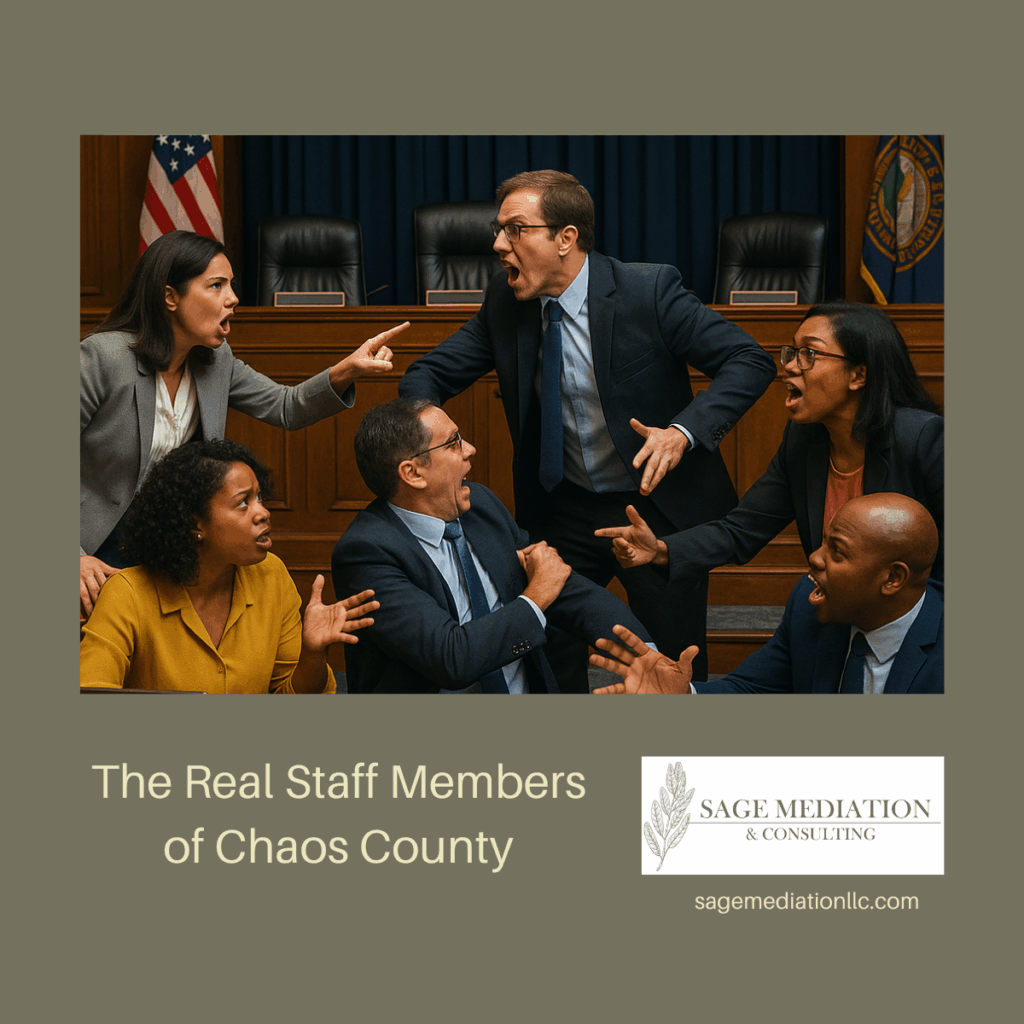
Who Needs the Bravo Network When You’ve Got City Hall?
If you’ve worked in or around local government long enough, you’ve probably sat through a meeting that felt less like policymaking and more like the Real Housewives of (Insert Jurisdiction). Personal attacks. Power plays—agendas hijacked by side issues. You half expect a participant to get shoved into a studio camera.
A recent PM Magazine article captured the real-world consequences of this behavior: projects stall, staff burn out, and public trust erodes. The dysfunction doesn’t stay confined to the dais — it seeps into the organization and, eventually, into the community.
Why It Happens
Elected officials, department directors, and other professional groups are made up of people — each with values, egos, and agendas. Add in public pressure, long meetings, and unclear boundaries between policy and operations, and the result can feel like a slow-motion train wreck.
Most of the time, the problem isn’t that people don’t care; it’s that they don’t know how to help. They’ve turned governance into competition. The people involved direct their energy toward scoring points instead of solving problems.
When “Winning” Becomes the Goal
Once decision-making becomes about “winning” rather than governing, every issue becomes a zero-sum game. That’s when meetings start dragging into the night, when colleagues undermine votes, and when staff begin to disengage.
The real loss, though, is trust. Residents lose faith that decisions are made in their best interest. Staff lose faith that leadership has their back. And elected officials lose faith in each other.
A Better Way Forward
There’s an alternative that doesn’t require anyone to surrender their principles: a structured reset led by a conflict resolution mindset.
This process isn’t therapy or a kumbaya circle. It’s a practical, facilitated series of conversations that help a governing body or staff:
Identify the root causes of tension.
Agree on norms for conduct and communication.
Clarify the line between policy direction and operational management.
Rebuild a shared sense of purpose.
Once the group agrees on how they’ll work together — and commits to following it — everything else gets easier. Meetings run more smoothly. Staff know where the boundaries are. The public sees a council that may still disagree, but does so in a respectful and productive manner.
What “Good” Looks Like
In healthy Commissions and working groups:
Members don’t avoid conflict; they embrace it as an opportunity for understanding, which leads to finding solutions not blame.
Members listen to understand, not to reload.
Policy discussions focus on outcomes, not personal agendas.
Everyone knows when to stop talking. (A lost art.)
“Good” doesn’t have to be some unreachable utopia — it’s simply functional governance.
The Bottom Line
Conflict in local government isn’t inherently bad. In fact, it’s necessary. However, when it becomes personal or performative, it ceases to serve the public good.
Bringing a resolution-focused attitude and skillset helps redirect that energy toward solutions that reflect the whole community, rather than just the loudest voice.
Because when a governing body or your senior staff operates with trust and clarity, the public follows suit.
So if your meetings feel more like holiday dinner drama than a boardroom, it might be time to change the channel.
Ready to hit “reset”? Contact me for information about how to get your governing body or staff back on track. Additionally, if you are attending this year’s ICMA Conference in Tampa, please join us for our session on Monday morning at 7:45: From Conflict to Collaboration.
#ICMA2025
Sarah is a Florida Supreme Court-certified mediator and ICMA Credentialed Manager specializing in organizational conflict resolution.
